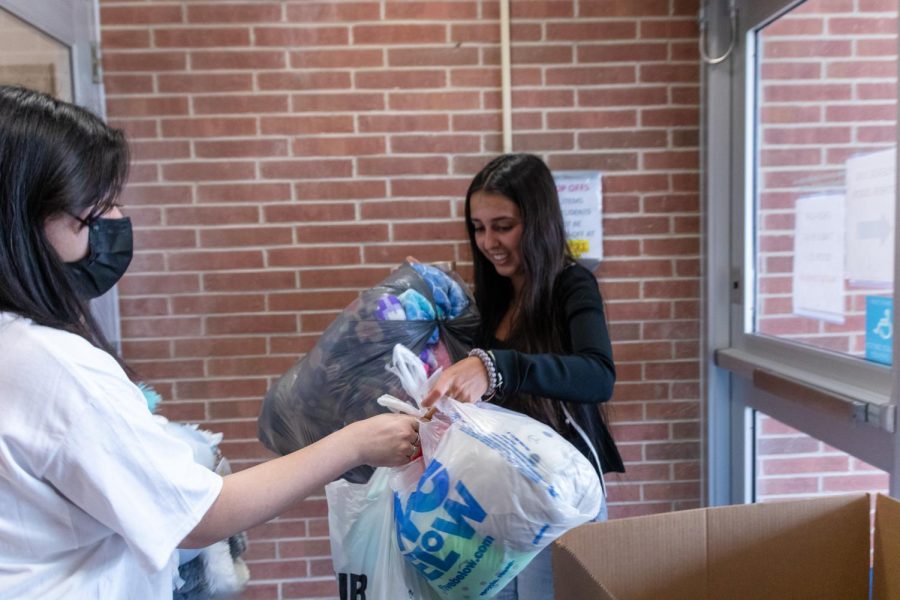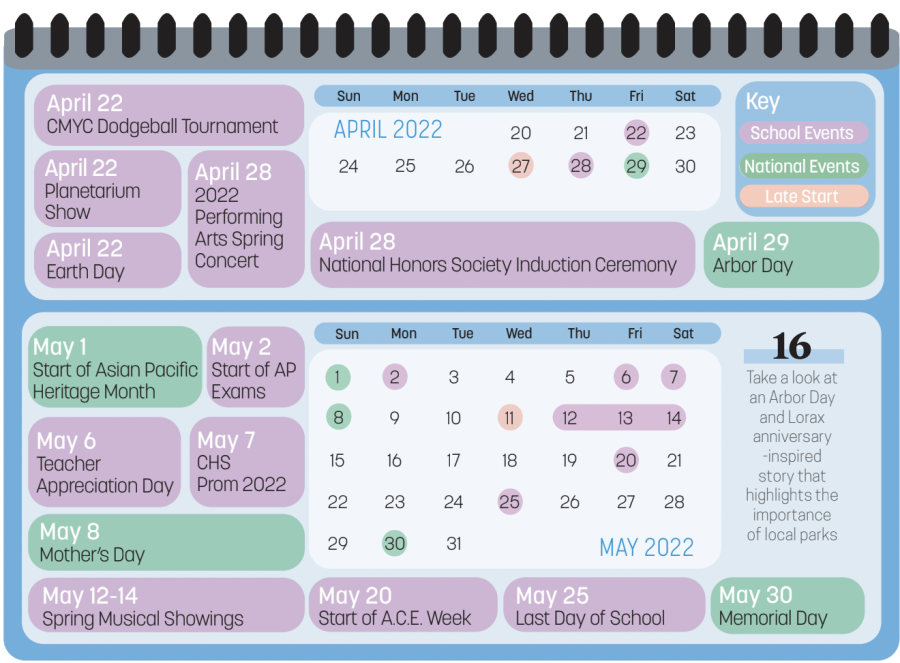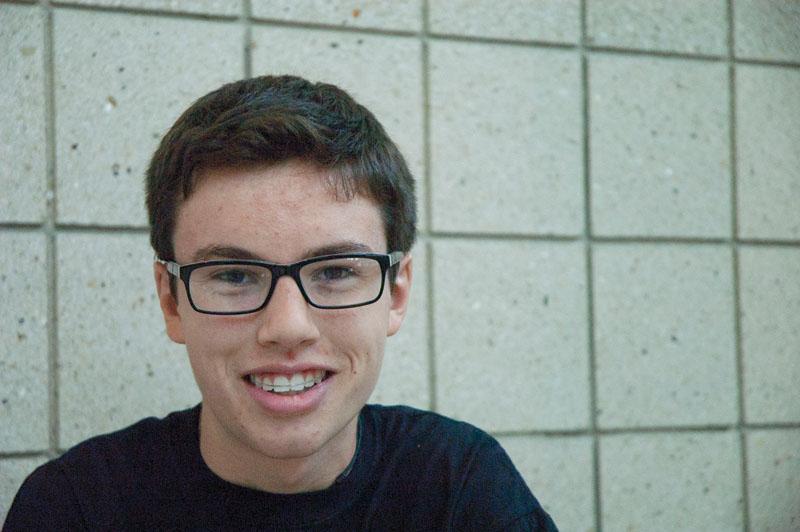 It is a well-known fact that this school offers a variety of extracurricular activities for students. Many of these, music and sports in particular, require a considerable amount of time spent practicing or rehearsing. Students participating in performing arts and athletic programs train tirelessly to hone their skills, yielding spectacular results. But these successes may be more than the result of hard work alone. According to certain scientific journals, natural talent may play a bigger role than previously thought.
It is a well-known fact that this school offers a variety of extracurricular activities for students. Many of these, music and sports in particular, require a considerable amount of time spent practicing or rehearsing. Students participating in performing arts and athletic programs train tirelessly to hone their skills, yielding spectacular results. But these successes may be more than the result of hard work alone. According to certain scientific journals, natural talent may play a bigger role than previously thought.
In his book Outliers, Malcolm Gladwell makes the case for a rigorous practice schedule. His book helps popularize what he calls the “10,000-Hour Rule.” This rule simply states that in order to become a leading expert in any chosen discipline, it is necessary to practice or work with that medium for 10,000 hours. Gladwell cites neuroscientist Daniel Levitin, who says that, “10,000 hours of practice is necessary to achieve the level of mastery associated with being a world-class expert.”
A study from The Journal of Neuroscience hinted that excessive amounts of practice may be necessary to become truly masterful. This study showed that even at such a time when an action had become perfectly natural to test subjects, the body was still making adjustments. When the subjects’ muscle memory had reached a stable level of retention, their bodiesv continued to use less and less metabolic energy with each time through the action. What this means is that practicing past what seems to be the point of mastery may be the best route to take in order to achieve greatness.
Now, faced with all this evidence, it would seem counter-intuitive — almost to the point of being a bit absurd — to say that practice isn’t necessarily the biggest piece of the puzzle where success is concerned. Yet, that is exactly what seems to be the case when psychologists put certain facets of this issue under closer scrutiny.
In a study published in the journal Intelligence, the data from 14 separate studies (on musicians and chess players) were taken into consideration and reanalyzed to see the feasibility of this “10,000-Hour Rule.” Their results showed that while practicing was important, other factors contributed even more than practice did.
In the study, Zach Hambrick, associate professor of psychology at Michigan State University, showed that deliberate practice only accounted for around 30 to 35 percent of what made certain chess players or musicians more masterful than others. The remaining 65 to 70 percent was accounted for by natural talent.
Philosopher Arthur Schopenhauer once said, “Talent hits a target no one else can hit; genius hits a target no one else can see.” Anyone can achieve talent through practice, but in order to find true genius, a certain level of innate talent is necessary. While most of us would like to live in an egalitarian world where everyone is on a level playing field, it’s simply a reality that some individuals have a bit of a leg-up.
Through my own experiences with performing arts, I have personally witnessed the benefits of being naturally gifted in certain areas. I started playing percussion around sixth grade and barely had any experience drumming at that point. Still, I seemed to have some degree of rhythmic talent that just came naturally. I found it possible to skate by almost all of middle school performing arts with little to no dedicated practice in my schedule. I would usually either play garage rock with friends or simply sit down behind the drum kit and improvise beats and fills. As much fun as this was, it only allowed my innate abilities to remain at a static level. Since arriving at CHS — and maturing a bit with regards to musicianship — I’ve found practice necessary in order to grow and develop, but I’m still aided by my own natural abilities.
It is important for students here to recognize the fact that in order to be truly masterful, it is essential to find something for which they have a natural aptitude. Lacking the proper predisposition, practice can only go so far. This is not to say that students shouldn’t participate in activities they aren’t naturally good at; nor is it to belittle the importance of practice. It is clear that practice is also an integral component of expertise, but to truly achieve greatness, the importance of a natural talent cannot be overstated. CHS students in particular need to keep this in mind when selecting from the myriad of extracurricular and co-curricular activities this school has to offer, so as to find an area in which they can truly excel and be great.
The views in this column do not necessarily reflect the views of the HiLite staff. Reach him at [email protected].



















![Joseph Broman, Mu Alpha Theta sponsor, grades tests for his honors precalculus/trigonometry class. Broman said, “I’m retiring from the Math Club next year and I’m just going to do Mu Alpha Theta so I can focus on that one and we can do more [speaker series] first semester.”](https://hilite.org/wp-content/uploads/2024/03/IMG_9502-1200x900.jpg)











![British royalty are American celebrities [opinion]](https://hilite.org/wp-content/uploads/2024/03/Screenshot-2024-03-24-1.44.57-PM.png)




















![Review: “The Iron Claw” cannot get enough praise [MUSE]](https://hilite.org/wp-content/uploads/2024/04/unnamed.png)
![Review: “The Bear” sets an unbelievably high bar for future comedy shows [MUSE]](https://hilite.org/wp-content/uploads/2024/03/unnamed.png)
![Review: “Mysterious Lotus Casebook” is an amazing historical Chinese drama [MUSE]](https://hilite.org/wp-content/uploads/2024/03/0.webp)
![Thea Bendaly on her Instagram-run crochet shop [Biz Buzz]](https://hilite.org/wp-content/uploads/2024/03/IMG_0165-1200x838.jpg)
![Review: Sally Rooney’s “Normal People,” is the best book to read when you are in a time of change [MUSE]](https://hilite.org/wp-content/uploads/2024/03/20047217-low_res-normal-people.webp)
![Review in Print: Maripaz Villar brings a delightfully unique style to the world of WEBTOON [MUSE]](https://hilite.org/wp-content/uploads/2023/12/maripazcover-1200x960.jpg)
![Review: “The Sword of Kaigen” is a masterpiece [MUSE]](https://hilite.org/wp-content/uploads/2023/11/Screenshot-2023-11-26-201051.png)
![Review: Gateron Oil Kings, great linear switches, okay price [MUSE]](https://hilite.org/wp-content/uploads/2023/11/Screenshot-2023-11-26-200553.png)
![Review: “A Haunting in Venice” is a significant improvement from other Agatha Christie adaptations [MUSE]](https://hilite.org/wp-content/uploads/2023/11/e7ee2938a6d422669771bce6d8088521.jpg)
![Review: A Thanksgiving story from elementary school, still just as interesting [MUSE]](https://hilite.org/wp-content/uploads/2023/11/Screenshot-2023-11-26-195514-987x1200.png)
![Review: When I Fly Towards You, cute, uplifting youth drama [MUSE]](https://hilite.org/wp-content/uploads/2023/09/When-I-Fly-Towards-You-Chinese-drama.png)
![Postcards from Muse: Hawaii Travel Diary [MUSE]](https://hilite.org/wp-content/uploads/2023/09/My-project-1-1200x1200.jpg)
![Review: Ladybug & Cat Noir: The Movie, departure from original show [MUSE]](https://hilite.org/wp-content/uploads/2023/09/Ladybug__Cat_Noir_-_The_Movie_poster.jpg)
![Review in Print: Hidden Love is the cute, uplifting drama everyone needs [MUSE]](https://hilite.org/wp-content/uploads/2023/09/hiddenlovecover-e1693597208225-1030x1200.png)
![Review in Print: Heartstopper is the heartwarming queer romance we all need [MUSE]](https://hilite.org/wp-content/uploads/2023/08/museheartstoppercover-1200x654.png)























![Review: Ladybug & Cat Noir: The Movie, departure from original show [MUSE]](https://hilite.org/wp-content/uploads/2023/09/Ladybug__Cat_Noir_-_The_Movie_poster-221x300.jpg)

![Review: Next in Fashion season two survives changes, becomes a valuable pop culture artifact [MUSE]](https://hilite.org/wp-content/uploads/2023/03/Screen-Shot-2023-03-09-at-11.05.05-AM-300x214.png)
![Review: Is The Stormlight Archive worth it? [MUSE]](https://hilite.org/wp-content/uploads/2023/10/unnamed-1-184x300.png)






